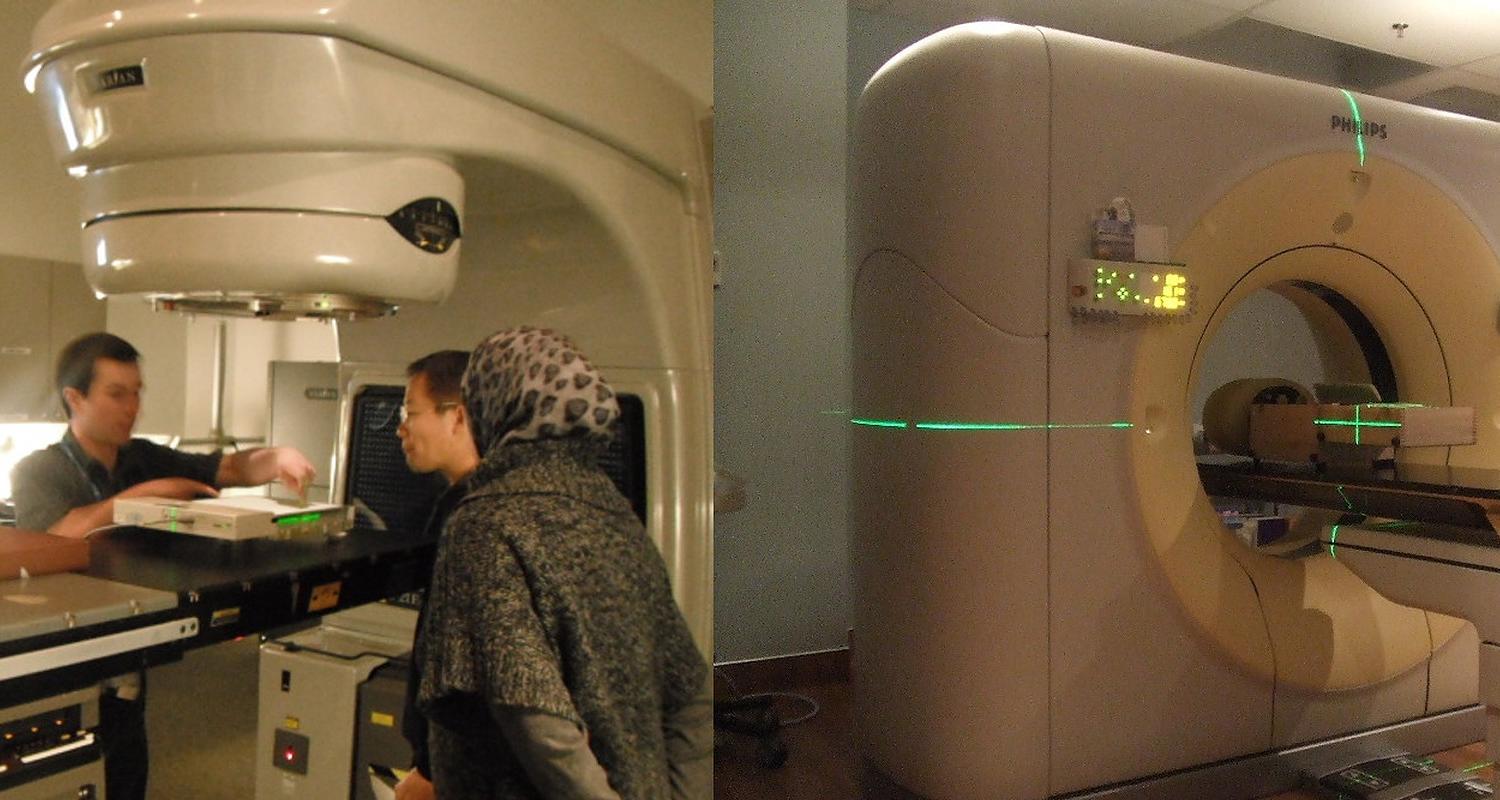Program Overview
Our CAMPEP-Accredited programs have many benefits. Our students work and take most of their classes in the Tom Baker Cancer Centre, a tertiary cancer centre treating over 3000 patients a year. They contribute to the clinical program very early on in their degree. They work directly on patient equipment, and as a result have an advantage when applying for residency positions. They attend Radiation Treatment Program rounds and the Centre’s grand rounds. They may attend tumor group meetings and participate in clinical discussions. Their research often directly impacts treatment decisions while they are still working on their degree.

Teamwork | Interdisciplinary
Our graduate students are supported in part by their work as physics assistants.
Clinical Experience
Our innovative program includes the opportunity for student exposure to clinical medical physics. Students have a short clinical rotation as part of their coursework. Our students also work as paid Physics Assistants on many quality control and clinical dosimetry activities. Paid training is provided. Past and current student responsibilities include:
- Performing or assisting with monthly and/or annual quality control measurements on:
- CT Simulators
- Linear Accelerators
- Stereotactic radiotherapy equipment
- Brachytherapy equipment
- Deep x-ray orthovoltage
- Assisting patient-specific quality assurance measurements on intensity modulated radiotherapy (IMRT) treatments.
- Making patient TLD measurements
Multidisciplinary Education
Our students receive a true multidisciplinary education. Depending on their project, supervisory committees typically consist of two radiation oncology medical physicists, a physician (specializing in e.g. radiation oncology, pathology, etc) and/or basic science physicist from the Department of Physics and Astronomy. In addition to formal credit courses, several other educational experiences are available to students. Physics colloquia are held weekly through the Department of Physics and Astronomy. Grand Rounds are held weekly in the Tom Baker Cancer Centre and these cover a broad range of cancer related issues. Division members, students and staff of the clinical Department of Medical Physics hold an Academic Session once per week during term time. Graduate students frequently present at these informal meetings. The Radiation Therapy Program also holds rounds which encompass a variety of clinical topics in radiation therapy and allow the participants to appreciate the challenges of providing cancer treatment from the perspective of the physician. Students in this specialization are expected to attend as many of these academic sessions as their schedule allows and to keep a record of their attendance.
CAMPEP Accreditation
All the graduate and post-graduate programs in Radiation Oncology Physics at the University of Calgary are accredited by CAMPEP. Out of over 50 universities in North America which offer graduate programs in Medical Physics, 50 (as of September 1, 2015) are currently accredited by the Commission on Accreditation of Medical Physics Educational Programs (CAMPEP). The radiation oncology specialty in Medical Physics at the University of Calgary is one of thirteen currently accredited programs in Canada. The post-doctoral certificate in Radiation Oncology Physics is one of nineteen accredited programs of this type in North America.
It's good for people who learn better by doing rather than by listening
SP
You can see the impact of your work as patients are treated... you're making the world a better place while also acquiring skills that will be valuable to your career
YP
